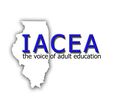|
Michael Matos, Technology Project Manager at Chicago Citywide Literacy Coalition, IACEA Region 1 Director, and COABE Region 3 Representative
Editor's note: This is Part 1 of a two-part article on innovative technology integration. Look for Part 2 on Friday, September 25. In my 25 years as an educator and educational administrator, I have always looked at teaching and learning as dynamic and interactive. Simply put, I place an emphasis on innovating education and educating to innovate. Most recently, I’ve had the opportunity to lead the Illinois Digital Learning Lab (IDLL), a cohort-based professional development model supported by the Grand Victoria Foundation that helps adult educators build digital literacy skills while creating technology-rich learning environments for adult learners. As an extension, the IDLL helps educators differentiate instruction while supporting the development of 21st century digital problem-solving skills. Because educational technology can be customizable and motivating to students, the effective use of edtech can provide some extraordinary and empowering opportunities for students and instructors. Introducing new tools, however, can be a challenging process for organizations. The barriers to using new technology have become increasingly visible in the rapid response to COVID-19 as teams quickly move to online instruction. In the 2014 research report, Adopting New Technologies for Student Success, the Community College Research Center in the Teachers College at Columbia University identified four key areas to consider when attempting to adopt new technology: - Technological readiness focuses on current IT systems and technology usage. - Organizational readiness focuses on how decisions are made and communicated. - Project readiness focuses on the training and support available to staff and students. - Motivational readiness focuses on if key stakeholders are aligned in the vision for technology usage and the need for change. As the report notes, the purpose of technology usage in education is not to “increase administrative efficiency or information technology (IT) compatibility, though this may occur. Rather it is to help colleagues in restructuring the student experience to encourage improved learning, persistence, and completion” (p. 1). In other words, technology isn’t used for the sake of technology, but rather to support a more accessible, equitable, and meaningful learning environment. When adopting new technology, like adding online learning programming, organizations can therefore increase the likelihood of success by considering and properly planning for each of the four areas outlined in the report. In Part 2, learn more about the Illinois Digital Learning Lab and how the Lab experience addressed these "tech pain points" in a practical, practitioner-to-practitioner way. Look for Part 2 on September 25!
0 Comments
Your comment will be posted after it is approved.
Leave a Reply. |
EditorsWant to submit an article for the IACEA Blog? Send your 300-500 word article to: Archives
May 2021
Category
All
|

 RSS Feed
RSS Feed